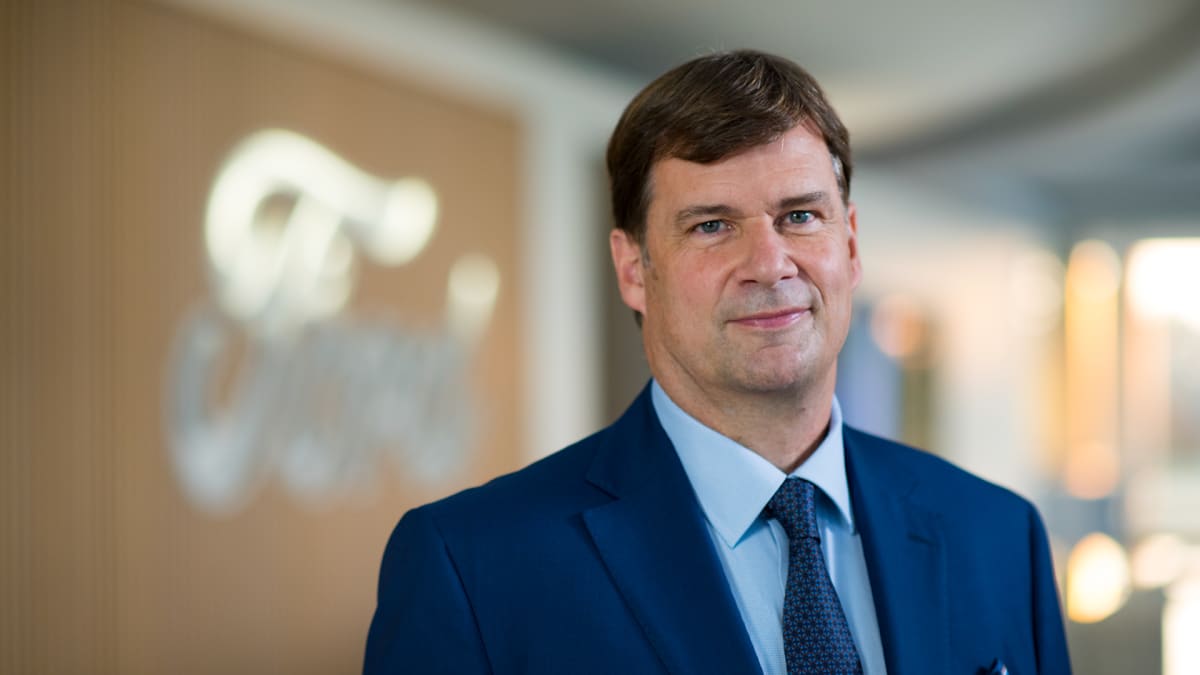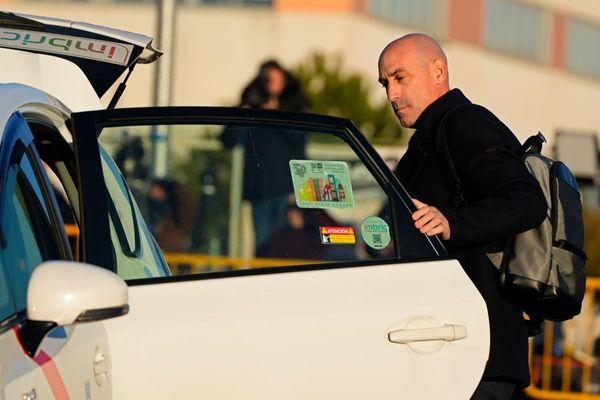
Ford Motor CEO Jim Farley discussed Thursday how the legacy automaker will partner with its competitor Tesla by using its charging network for its electric vehicles.
Farley discussed the initiative with Tesla CEO Elon Musk via a Twitter Spaces.
DON'T MISS: Elon Musk Addresses DeSantis Fiasco
Owners of Ford EVs will be able to access Tesla's Supercharger network in the U.S. and Canada, starting in 2024. Ford is the first automaker to conduct a deal to use Tesla's chargers.
Ford currently has over 10,000 DC fast-chargers that are already part of its BlueOval Charge Network. Its dealers will add about 1,800 public-facing fast-chargers and locations to the BlueOval Charge Network by early 2024.
Customers who own the Mustang Mach-E, F-150 Lightning and E-Transit can use Tesla's network by adding an adapter and software integration. It will also require activation and payment via FordPass or Ford Pro Intelligence.
By 2025, Ford's new EV models will have the North American Charging Standard (NACS) connector built-in and will not need an adapter to use Tesla's charging network.
The news was initially announced by the Biden administration on Feb. when Tesla said it would make at least 7,500 chargers available for all EVs by the end of 2024, but no partnerships with specific automakers were named.
Federal Money is Involved
The infrastructure law includes federal government investments of $7.5 billion in EV charging, $10 billion in clean transportation and over $7 billion in EV battery components.
Tesla's charging network currently is only available for its own vehicles. Ford vehicles will need to add an adapter in order to charge,
The veteran automaker has been under scrutiny as investors and analysts are skeptical of its ambitions to become a major player in electric vehicles
Musk said the adapters would not be cost prohibitive and cost "hundreds of dollars."
Ford separated its EV business from its combustion engine models in March 2022.
"Splitting out the business has been a game changer," Farley said during Twitter Spaces.
He said he "respects" Tesla because it conducts updates via its software.
There were at least 18,406 accounts listening to the CEOs discuss the new deal between Ford and Tesla.
The conversation between Farley and Musk included light banter.
"It is super hard to make cars," Musk joked.
DeSantis Spaces Failed
The discussion comes just 24 hours after a high-profile Spaces session between Musk and a presidential candidate flopped.
Musk's Twitter Spaces with Florida Governor Ron DeSantis on May 24 was a fiasco when technical difficulties prevented it from starting on time.
While it was a moment that Musk had been waiting for since he acquired Twitter last October for $44 billion, instead of sending a message to the media mogul Rupert Murdoch, the debut was rocky.
Musk had sought to be crowned as new kingmaker of American politics, reported TheStreet's Luc Olinga.
But in the end, it was a resounding failure, symbolized by the mocking and negative headlines in almost all the traditional media.
Musk, the billionaire entrepreneur who sees himself as a global leader, interviewed Ron DeSantis, seen as the most serious republican threat to former President Donald Trump's effort to regain the presidency in 2024.
The governor of Florida was to announce his presidential bid on Musk's Twitter platform, writing an important page in the history of social networks.
The interview was supposed to be in an unconventional format: a live audio conversation, or Twitter Spaces, between Musk and DeSantis, moderated by David Sacks, a tech investor and confidant of Musk. The show was scheduled to start at 6 p.m. EDT.
But at the appointed time -- silence. A message then appeared before the hundreds of thousands of Twitter users who had tuned in: "Details not available." The silence persisted. After about six or seven minutes a voice finally broke in to what was becoming a worrying situation: "Mr. Musk?" And then nothing. "Now it's quiet," another voice said. And then nothing.
It took about 26 minutes for the event to kick off and to hear DeSantis say, "Well, I am running for president of the United States to lead our great American comeback."
For a little more than an hour the candidate and the host denounced what they called the woke mind virus, defined as progressive values. They made clear that DeSantis saw himself as the candidate for the new culture war, the one who put it at the center of his campaign.
The catch is that this historic moment will be remembered mostly for the technical issues that stole the Elon Musk-Ron DeSantis Show. For many observers it was a real fiasco, exposing the vulnerabilities of Twitter 2.0, which has lost more than 69% of its workforce -- through job cuts and forced departures -- since the billionaire took power.







